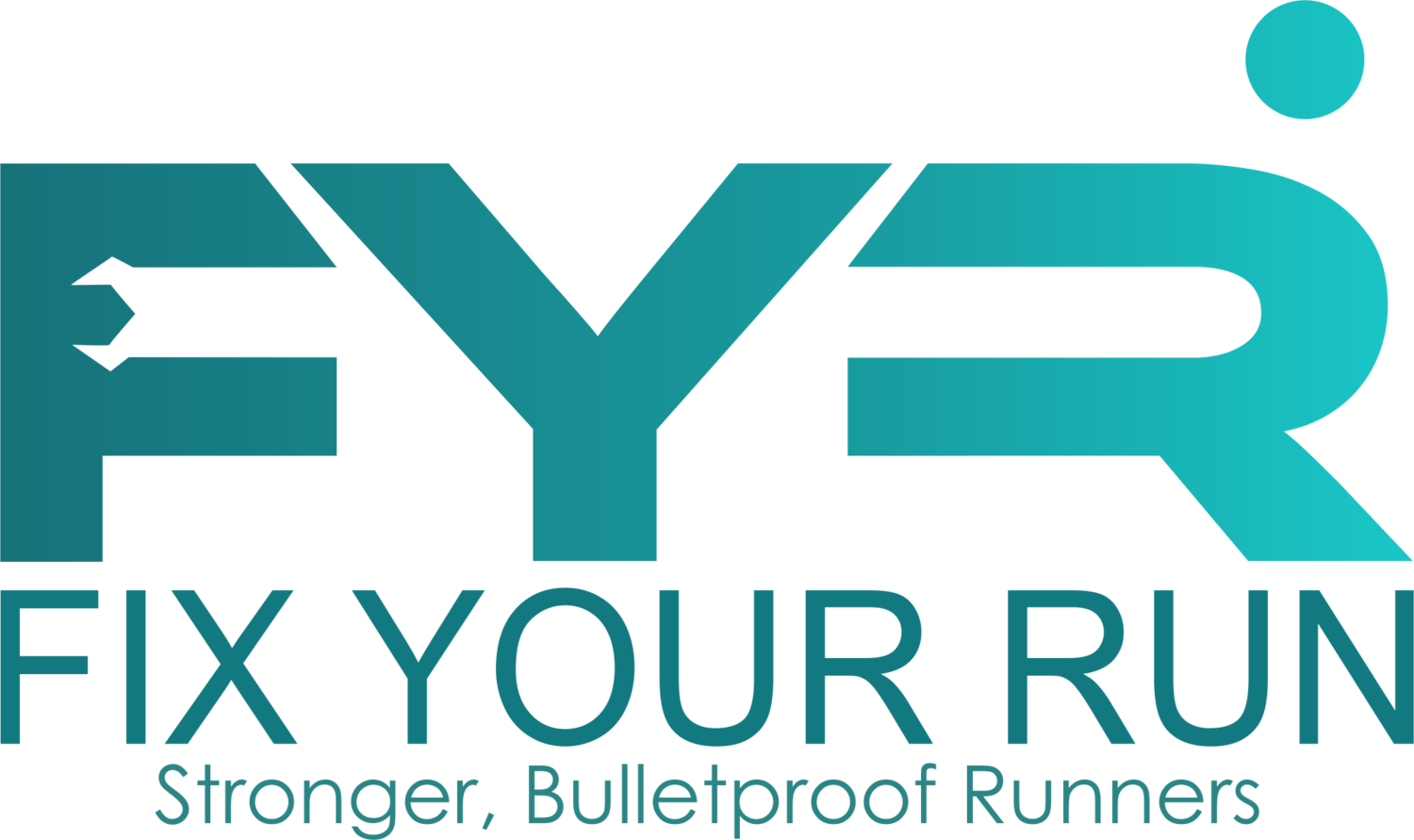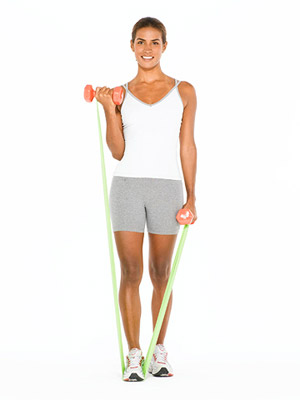There are a lot of training mistakes runners make over and over again. We've talked about several of them right here at Fix Your Run. For some reason, though, the mythology continues to persist on one in particular. “I'm a distance runner. I should be lifting light weights for high repetitions, right?”
Sigh... Well, at least you know you should be doing something other than running.
First let me start by making myself clear. Should you perform resistance training? Yes. There is simply no argument here. I can summarize the reasons with the following question.
Who will win the following race: a strong athlete or a weak athlete?
Of course, all else being equal, the strong athlete will ALWAYS win! It's a no-brainer, right?
And this is only from the running performance perspective. What happens to your health, body fat, athleticism, balance, coordination, injury risk, posture, bone density, endocrine and immune system function? Oh that's right. They ALL improve. Many of those actually get worse if you ONLY RUN.
Now that you're convinced strength training is important, you're probably wondering how to incorporate it into your program. So back to our original question. You should be lifting light weights, right?
No.
Now it's really time to bash some mythology. I mean, 20 years ago I don't think many people knew any better, but now there's no excuse. Well, maybe if your trusted source of strength training info is the latest celebrity workout presented on Access Hollywood. But come on, now.
If you're a beginner you DO need to practice your strength movements with a low load. That may mean just using your bodyweight. In fact, you should master the bodyweight version of a strength exercise before loading it (adding weights). After a month you'll be ready to begin the process of progressive overload.
Progressive overload is the concept of gradually - over time - adding resistance to your exercise. If you think yoga or pilates counts as strength training, it doesn't. How do you make a class that is bodyweight-only harder? Those activities have their place, but they will only take you so far in the strength department.
Eventually, you need to lift some serious weight. Just like a good running plan is composed of several speeds, the best strength routines have a variety of repetition zones factored into the program.
Get out of the 10-15 rep mindset and work your way down into the 1-5 repetition zone. You won't "feel the burn" while lifting a weight 3 times, but that's not the point.
Feeling the burn will not make you a stronger athlete. The reason is that to gain strength you want to draw upon as many muscle fibers as possible. To access your fastest-twitch muscles (type IIb), you need to lift very heavy weight - about 90%+ of your maximum. These muscles fatigue quickly (within 6-7 seconds) and, once you go beyond that time frame, you're not training them anymore. So, since feeling the burning sensation in your muscles doesn't happen within 6-7 seconds, you don't need to worry about going for the burn.
In endurance sports we tend to get carried away with improving our engine, our aerobic capacity. But isn't it also how much force you can direct into the ground? When you run, you are fighting gravity. That is where the majority of our energy goes. The better equipped you are to fight gravity, the better you will run.
Maximum strength is the foundation for everything (power, strength endurance, force development etc.). You can't have strength endurance (being able to lift a sub-maximal weight repeatedly) or generate maximum force without first having strength.
This relates to running. Sprinting is max effort. Running at 5K pace might be 90% of your aerobic capacity, but it's probably only 50% of your force producing capacity. Imagine if you were stronger, you'd have a higher force “reserve”. Then your new 50% will be higher than your old 50%.
So get your strength up by gradually challenging yourself more at the gym (and doing your sprint work). Light weights won't work for improving your run. Do not get caught in this trap.
Need help figuring out how to incorporate strength training (that actually gets results) into your running program? Contact me now!
Oh, and another thing: heavy weights will NOT add muscle bulk. If you're still stuck on this one, let me know. I'll set ya straight.
Got any more myths for me?


